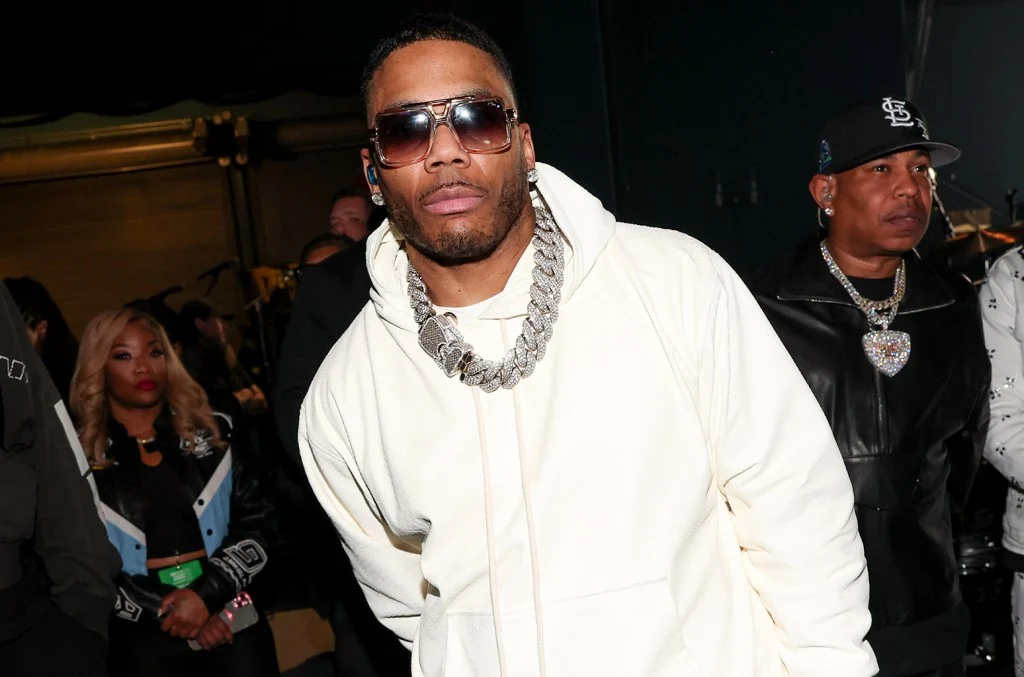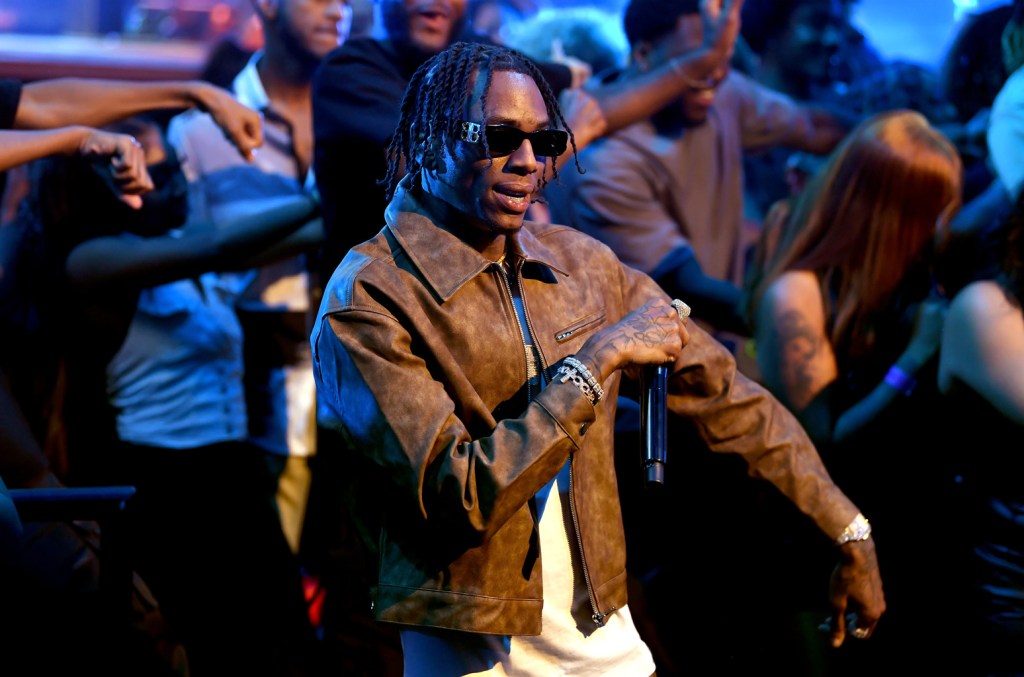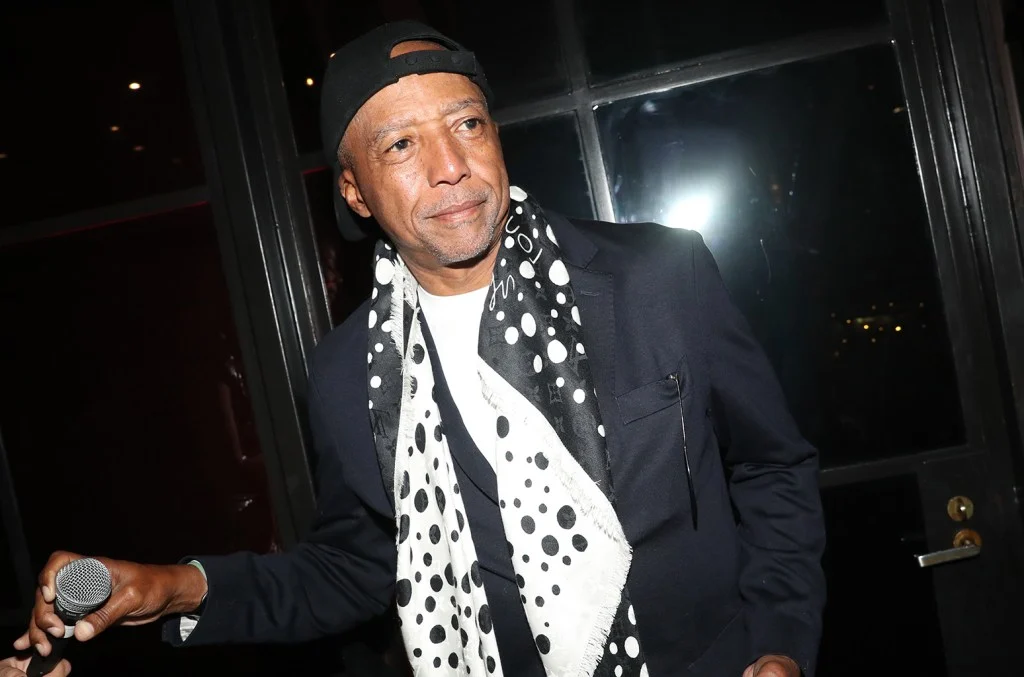Legal
Page: 25
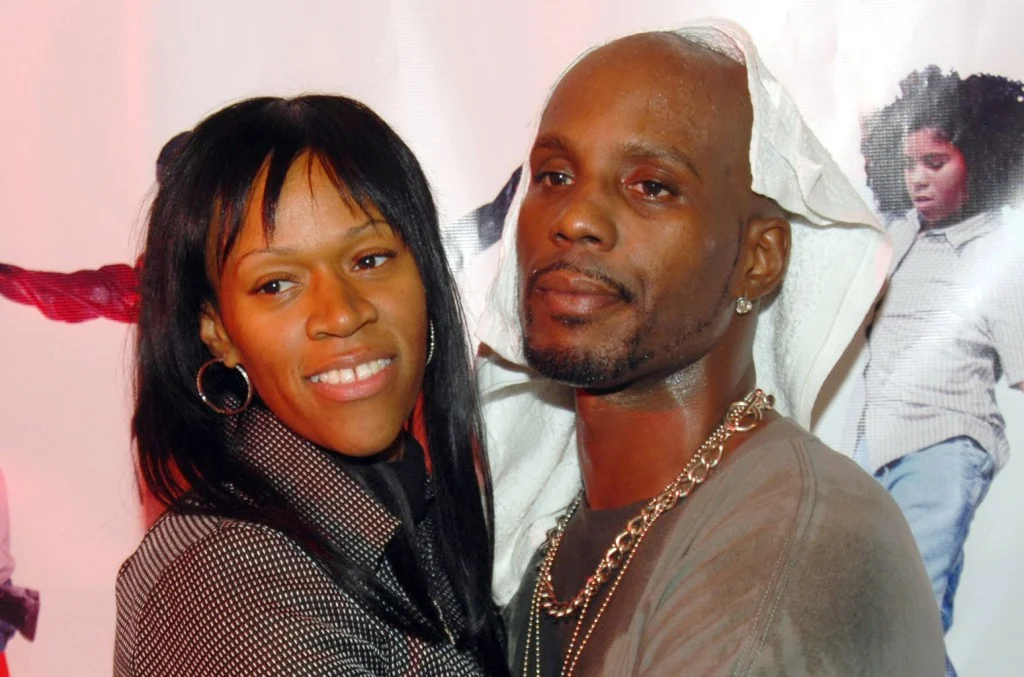
This is The Legal Beat, a weekly newsletter about music law from Billboard Pro, offering you a one-stop cheat sheet of big new cases, important rulings and all the fun stuff in between.
This week: DMX’s estate wins a legal battle with his ex-wife over his music catalog; Nelly’s former St. Lunatics bandmate drops a lawsuit over his debut solo album; Soulja Boy is hit with a $4 million civil verdict for assault and sexual battery; and much more.
THE BIG STORY: DMX Estate Battle
Back in 2016, the late great DMX (Earl Simmons) signed a divorce settlement with his then-wife Tashera Simmons, ending a long marriage that had extended through his turn-of-the-century heyday, as he released Billboard Hot 100 hits like “Party Up (Up In Here).”
Trending on Billboard
Among other provisions, the deal mentioned “intellectual property,” a key marital asset for a chart-topping musician. Tashera says that clause gave her co-ownership of his copyrights and trademarks, but DMX insisted that it only granted her the right to receive royalty payments — an argument his estate has maintained in the years since his 2021 death.
That’s a crucial distinction. Royalties are all well and good, but ownership would give Tashera approval power over the use of DMX’s catalog and name. That would mean an effective veto over potentially lucrative projects, like a biopic about the legendary rapper.
In a ruling last week, a New York judge ruled against Tashera on that question, declaring that DMX’s estate (run by an ex-fiancée and a daughter by another woman) was the “sole owner of all intellectual property rights.” Why that ruling? To find out, go read our full story here, with access to the full decision issued by the judge.
Other top stories this week…
NELLY CASE CLOSED – OR IS IT? – Nelly’s former St. Lunatics bandmate Ali moved to voluntarily dismiss a lawsuit that had accused the rapper of failing to pay him for his alleged work on Nelly’s 2000 debut album Country Grammar. But Nelly’s lawyers quickly opposed the move, arguing that Ali and his lawyers must face sanctions for filing a “ridiculous” case that “should never have been brought.”
SOULJA BOY VERDICT – Following a month-long trial, a Los Angeles jury held Soulja Boy liable for assault, sexual battery and intentional infliction of emotional distress in a civil lawsuit filed by a former personal assistant who claimed that he raped her. Jurors awarded the Jane Doe accuser more than $4 million in damages, and she could win even more in so-called punitive damages in future proceedings.
“PATENTLY FALSE” – Record executive Kevin Liles asked a federal judge to throw out a lawsuit accusing the 300 Entertainment founder of sexual assault in the early 2000s, arguing there’s zero evidence for the “salacious” allegations because they are “entirely false.” His lawyers argued the allegations — that Liles harassed and sexually assaulted an unnamed female employee while serving as the president of Def Jam Records in 2002 — are both “patently false” and were filed far past the statute of limitations.
LIMITATIONS OF STATUE – Former Migos rapper Quavo (Quavious Marshall) was hit with a copyright lawsuit centered on a recent music video he released on TikTok — not over an uncleared sample or a stolen melody, mind you, but a quartz sculpture of a 1961 Ferrari that he used as a prop. The case, filed by sculptor Daniel Arsham, claimed that Quavo “unlawfully exploited” the piece by rapping in front of it during the December social media video: “Mr. Arsham never consented to the artwork being used in the infringing content.”
KAROL G RULING – A court in Colombia ruled that Karol G’s “+57” violated that country’s laws because its lyrics “sexualized” minors, capping off months of controversy over the track. “Sexualizing minors reduces them to becoming objects of desire, and exposes them to risks that can affect their development,” the court wrote in the ruling. The song, also featuring J Balvin, Maluma, Feid, Blessd, Ryan Castro and DFZM, has faced a barrage of criticism after it originally included a line about a woman being a “mamacita” since she was 14 years old.
AI LEGISLATION – A federal law that would ban unauthorized AI deepfake impersonations, known as the NO FAKES Act, was reintroduced in Congress — only this time with public support from AI powerhouses including OpenAI and YouTube. First introduced last year, the bill would create a federal right of publicity for the first time, allowing individuals to police how their name, image and likeness are used by others, an issue that has become far more pressing as AI video generators make it far easier to create uncanny deepfakes.
It has been nearly eight months since disgraced hip-hop mogul Sean “Diddy” Combs was arrested and sent to New York’s notorious Metropolitan Detention Center to await trial on sex trafficking and racketeering charges. And while the formerly high-flying Bad Boy Records CEO and billionaire entrepreneur was used to the finest things in his former life, according to the New York Times, his life in the communal, dorm-style unit segregated from the rest of the inmates is a study in contrasts from his previous life.
Explore
See latest videos, charts and news
See latest videos, charts and news
For starters, the typically dapper MCs hair and beard have gone grey, since hair dye is not allowed in the Brooklyn jail that has long been the source of complaints over its decrepit state, including reports of mold and vermin, extended lockdowns and understaffing. As part of his daily routine, Combs, 55, is woken up for breakfast at 7 a.m. and afterwords has time to exercise in a room with yoga mats and a small basketball hoop, or to hang in a communal space with a ping-pong table and a TV.
Combs’ lawyers have tried, and failed, three times to get their client released on bail on the charges that, if he’s found guilty of, could land Diddy in prison for the rest of his life. While Combs has pleaded not guilty to the charges he awaits opening statements in the trail slated to begin on May 5 over allegations that the rap impresario oversaw a violent criminal conspiracy that allegedly included kidnapping, arson and drug crimes in service of his alleged sexual abuse of multiple men and women to satisfy his need for “sexual gratification.”
For now, Combs is in an area of the jail called 4 North, a fourth floor space where around 20 men are housed. Fellow high-profile inmates on the unit included, until recently, crypto boss Sam Bankman-Fried, along with government informants, including former gang members who have been segregated for their safety from the general jail population; accused United Health Care CEO murderer Luigi Mangione who shares a lawyer with Combs, is housed in the same jail, but in a different unit.
While Combs’ lawyers at first thought their A-list client would be housed in the restrictive Special Housing Unit where inmates spend 23 hours a day inside their cell, he was instead sent to the less harsh 4 North Unit.
A former Mafia informant, Gene Borrello, told the paper that compared to other units in the jail “you have nothing to worry about” on 4 North. As described by the Times, inmates in Combs’ unit are free to move around the space decked out with rows of bunk beds, TVs and a microwave where they are subject to repeated mandatory check-ins of their bunks by correction officers every day.
Inmates, who are issued brown jail clothes, are able to eat their meals in a common area and use a bathroom that has stalls, as well as listen to music or watch movies on a tablet for sale at the commissary, though they do not have any internet or wi-fi access. Diddy meets often with his team of lawyers in a conference room off the common area and has a non-wi-fi enabled laptop to pore over evidence in the case that he can use between 8 a.m. and 3:30 p.m. each day in one of the unit’s visiting rooms.
While Diddy dined on the finest meals provided by private chefs in his former life, the menu in lock-up is decidedly less glamorous, with a rotating menu that includes lasagna or “pasta fazool” for vegetarians on the second Friday of each month. There are also Snickers bars and bags of Cheez-Its for sale in the commissary, along with toiletries, radios and watches. Inmates can spend up to $180 at the commissary every two weeks from funds provided by friends and family, with one crucial item, $1 packets of mackerel (“macks”) serving as a key bartering tool among the incarcerated.
Combs is allowed to have visitors on Tuesdays and while he can make phone calls — such as a recent one to rapper Ye — the conversations are capped at 15 minutes and they are subject to monitoring by authorities. The story noted that during a pre-planned sweep of the jail in search of contraband last year, prosecutors claim an investigator took photos of some of Combs’ personal notes. The pictures allegedly included birthday reminders, as well as notes the government claims were evidence that Diddy was trying to obstruct the prosecution, including one in which he allegedly directed a staffer to find “dirt” on two of his alleged victims.
The rapper’s lawyers claimed that was proof the government was trying to “spy” on their client and eavesdrop on confidential communications with counsel. Prosecutors denied that claim and said none of the notes would be used in their case and a judge agreed that Combs’ rights had not been violated.
But according to the Times, the incident revealed that Combs had engaged in the widespread practice of buying other inmates’ phone time by having his team put money in their commissary accounts, with prosecutors claiming that on some of the calls he talked about using public statements to help influence the jury pool’s perception of him. He also allegedly used three-way calling to try and contact potential witnesses to avoid blocks on calling people outside of his approved contact list.
While the current accommodations are, as expected, spare and somewhat harsh, they likely pale in comparison to the federal prison Combs could be sent to convicted on the charges in the eight-week trial. Even as he awaits his upcoming trial, Combs was hit with an updated indictment earlier this month that added new charges to the sweeping case against him. The superseding indictment added a new sex trafficking count, accusing Combs of using force, fraud or coercion to compel a woman to engage in commercial sex acts as recently as last year. It also added a new count of transporting that victim and others to engage in prostitution. The updated charges increased the total counts against Diddy from three to five.
Combs is also facing dozens of civil lawsuits from a number of men and women who claim the rap impresario allegedly sexually abused, sex trafficked and threatened them with violence.
Rapper Tay-K has been found guilty of murdering a photographer in 2017, but was acquitted of capital murder. On Monday (April 14), a jury found the rapper, real name Taymor Mclntyre, guilty of robbing and killing photographer Mark Anthony Saldivar, according to News 4 San Antonio. Prosecutors had argued Mclntyre fatally shot Saldivar after stealing […]
Quavo is facing a copyright lawsuit centered on a recent music video — not over an uncleared sample or a stolen melody, but a quartz sculpture of a 1961 Ferrari that he used as a prop.
In a complaint filed late last month, attorneys for sculptor Daniel Arsham claim the rapper (Quavious Marshall) “unlawfully exploited” the Ferrari sculpture by rapping in front of it in a video he posted to TikTok and other social platforms in December.
“Without his consent, and without his knowledge, defendants created a video which prominently featured the artwork to promote the music of Quavo,” Arsham’s lawyers write in the March 31 lawsuit. “Mr. Arsham never consented to the artwork being used in the infringing content.”
Trending on Billboard
Arsham created the sculpture — fully entitled “Quartz Eroded 1961 Ferrari GT” — in 2018 as part of a series portraying famous cars that have been “eroded” like an ancient archeological find. He says it’s been publicly displayed twice, most recently at Los Angeles’ Petersen Automotive Museum in 2023.
In December, Quavo posted a video to Instagram and other platforms under the caption “Back To The Basics 2025!!”, featuring him rapping in front of what appears to be Arsham’s work. The video, which remains on TikTok, focuses heavily on the sculpture, including close-ups on its eroded features.
Just like music, books and paintings, sculptures are protected by federal copyright law, and reproducing one without permission can theoretically amount to infringement. Back in 2018, the artist behind Chicago’s “Bean” sculpture sued the National Rifle Association for using the famed statue in a promotional video.
Copyrighted works captured in the background of video footage raise tricky legal questions. A federal judge ruled in 2018 that a Detroit graffiti artist could move ahead with suing General Motors after his mural appeared in a Cadillac commercial. But last year, another federal judge dismissed a case filed by a photographer whose image briefly appeared in the background of a documentary about Billie Eilish.
In his lawsuit, Arsham says the use of his sculpture was hardly coincidental or brief: “The infringing video features Quavo performing in front of the Artwork. The Infringing Video is 45 seconds long and features the Artwork prominently throughout.”
According to the artist’s attorneys, when Quavo posted still images of the video to Instagram, he actually tagged Arsham’s Instagram handle in the caption. They say that not only confirms that he knew he was using a copyrighted work, but also violated Arsham’s likeness rights.
“Mr. Arsham never consented to his name being used in connection with the Infringing Post or any promotion of Quavo,” his attorneys wrote. “Defendants are using Mr. Arsham’s name for commercial advantage.”
A rep for Quavo did not immediately return a request for comment on Friday (April 11). The lawsuit also names Quavo’s label, Quality Control Music, and its parent company, HYBE America, as co-defendants.
YoungBoy Never Broke Again should be expecting a knock on his door and a fresh batch of homemade cookies some time real soon. The Baton Rouge rapper — who was sentenced to 23 months in prison last December while already serving time for a prescription fraud case — is back home early in Utah and […]
Nelly’s former St. Lunatics bandmate Ali wants to drop a lawsuit that had accused the rapper of failing to pay him for his alleged work on Nelly’s 2000 debut album Country Grammar. But Nelly’s lawyers say Ali and his lawyers must pay for bringing a “ridiculous” case.
The action, filed last year, alleged that Nelly (Cornell Haynes) had cut four of his former St. Lunatics crew out of the credits and royalty payments for the hit album. It claimed the star had repeatedly “manipulated” them into falsely thinking they’d be paid for their work.
But three of the St. Lunatics quickly dropped out, saying they had never actually wanted to sue Nelly and had never given legal authorization to the lawyers who filed the case. And in recent months, Nelly’s lawyers had sought punishing sanctions against those attorneys.
Trending on Billboard
In a motion filed Thursday (April 10), Ali and his lawyers moved to voluntarily dismiss the case. They offered no rationale for why they were doing so, and there was no indication that a settlement of any kind had been reached. They did not immediately return a request for comment.
Nelly’s attorneys aren’t going to let him off the hook that easily. In a quick response, they urged the judge to refuse to dismiss the case until he decides whether Ali and his attorneys should face punishment for filing a “vexatious” lawsuit that “should never have been brought.”
“Plaintiff’s counsel succeeded in its frivolous campaign aimed at forcing Haynes to spend money defending Plaintiff’s ridiculous time-barred claims,” the star’s lawyers write. “The Court is respectfully requested to retain jurisdiction and set a briefing and hearing schedule for [potential sanctions].”
Nelly rose to fame in the 1990s as a member of St. Lunatics, a hip-hop group also composed of St. Louis high school friends Ali (Ali Jones), Murphy Lee (Tohri Harper), Kyjuan (Robert Kyjuan) and City Spud (Lavell Webb). With the June 2000 release of Country Grammar — which spent five weeks atop the Billboard 200 — Nelly broke away from the group and started a solo career that later reached superstar heights with his 2002 chart-topping singles “Hot in Herre” and “Dilemma.”
In September, all four St. Lunatics accused Nelly of cheating them out of compensation for contributions they’d made to Country Grammar. They claimed they had waited so long to sue because they believed their “friend and former band member would never steal credit” from them.
But a month later, the lawsuit took a strange turn: Nelly’s lawyers filed a letter warning that Lee, Kyjuan and Spud had never actually wanted to sue Nelly and that they had not given legal authorization to the lawyers who filed the lawsuit to include them as plaintiffs.
“They are hereby demanding you remove their names forthwith,” Nelly’s lawyers wrote in a letter to Walton. “Failure to do so will cause them to explore any and all legal remedies available to them.”
In November, Ali’s attorneys filed an updated version of the lawsuit listing only Ali as a client and vowed to fight on. But Nelly’s attorneys have since argued that the case is “frivolous,” claiming it was clearly filed years after the statute of limitations had expired. In January, they said it was so obviously flawed that the lawyers who filed it should be punished for going to court.
“Plaintiff and his counsel should be sanctioned in the full amount … that Haynes has been forced to incur in defending this action,” the rapper’s lawyers wrote at the time. “That is because plaintiff’s claims should never have been brought in the first place.”
Last month, the judge overseeing the case said he would not rule on that motion until he decided whether to dismiss the case. Such a motion to dismiss from Nelly’s attorneys was pending when the case was voluntarily dropped.
A Los Angeles jury held Soulja Boy liable Thursday (April 10) in a civil lawsuit filed by a former personal assistant who says he raped her, awarding the unnamed woman $4 million in damages.
As first reported by Courthouse News, jurors held the “Crank That” rapper (DeAndre Cortez Way) liable for assault, sexual battery and intentional infliction of emotional distress. The jury cleared him of claims of false imprisonment or hostile work environment.
Following the month-long trial, the jury awarded the Jane Doe accuser $4 million in so-called compensatory damages. And they could award more in so-called punitive damages in future proceedings.
Trending on Billboard
The accuser, who says she was hired as Soulja Boy’s assistant in 2018, sued the star in 2021, claiming he had repeatedly beaten and raped her over a two-year, sometimes consensual relationship. In one alleged assault, her lawyers claimed that “Way attacked plaintiff so hard that she thought she was going to die.” The rapper has “vehemently and unequivocally” denied the woman’s allegations.
During closing arguments Monday (April 7), as reported by Rolling Stone, attorneys for the Jane Doe portrayed Soulja Boy as a vicious boss and told jurors that “he raped her, he punched her, he kicked her, he cut her.” The rapper’s lawyers, meanwhile, painted the accuser as a bitter former love “motivated by jealousy, revenge and financial gain”: “She wanted to be paid. That’s what this case is all about. It’s not about the truth, it’s just not,” they said.
“We’re happy our client was vindicated and the jury believed her claims,” said Ron Zambrano, the accuser’s lead attorney. “We’re looking forward to moving on to the punitive damages phase of the case.”
An attorney for Soulja Boy did not immediately return a request for comment.
This isn’t the first time Soulja Boy has faced such accusations. Back in 2023, he was ordered to pay ex-girlfriend Kayla Myers $471,900 stemming from an assault and kidnapping lawsuit she filed against the rapper in 2020.
Young Buck (real name David Brown) has had his bond revoked in Tennessee due to what officials called “repeated violations of his bond supervision,” local ABC affiliate WKRN reported. The news outlet also said that Assistant District Attorney Daniel Daugherty noted the hearing was held Monday (April 7). Explore Explore See latest videos, charts and […]
Record executive Kevin Liles is asking a federal judge to throw out a lawsuit accusing him of sexual assault in the early 2000s, arguing there’s zero evidence for the “salacious” allegations because they are “entirely false.”
In a letter to the judge filed Tuesday, attorneys for the 300 Entertainment founder say they’re planning to file a motion to dismiss the case, which alleges that Liles harassed and sexually assaulted an unnamed female employee while serving as the president of Def Jam Records in 2002.
“During his storied career, Mr. Liles has never faced a single accusation of sexual impropriety,” his attorneys write. “That is, until plaintiff filed this patently false and untimely lawsuit some twenty-three years after the alleged conduct purportedly occurred.”
Trending on Billboard
Liles’ lawyers say the Jane Doe’s lawsuit contains only generic accusations and almost no specific details to support her allegations – an omission that they say is “not surprising as the claims are entirely false.”
“Beyond these threadbare assertions, spanning only three paragraphs, plaintiff offers zero factual bases for her salacious allegations,” his attorneys say “This court need not credit Plaintiff’s threadbare recitals and ‘defendant-unlawfully-harmed-me’ accusations.”
Liles served as president of Universal Music Group’s Def Jam Recordings and executive vice president of the Island Def Jam Music Group from 1999 to 2004. After a stint at Warner Music Group, he co-founded 300 Entertainment in 2012 with Lyor Cohen, Roger Gold and Todd Moscowitz. The label, which quickly gained recognition for developing hip-hop superstars like Megan Thee Stallion, Migos and Young Thug, was acquired by Warner in 2021 for $400 million. In September, Liles announced he would step down from his role as chairman and CEO.
The case against Liles was filed in February by a woman who says she was hired as an executive assistant at UMG in 1999. She claims that Liles began sexually harassing her shortly after she was hired, which then “escalated” into groping. In an alleged 2002 incident, Doe says he assaulted her after she rebuffed his advances.
“Kevin Liles proceeded to physically force himself on top of [Jane Doe] where he began to sexually assault and ultimately rape her despite her continued protests,” her attorneys wrote in their complaint.
But in Tuesday’s response, Lile’s attorneys say those allegations are woefully insufficient, arguing they lack the kind of basic facts required to bring legal allegations in court. They say Doe “does little more than simply assert in conclusory form that Mr. Liles assaulted her.”
“Plaintiff offers no detail whatsoever regarding the nature of the purported assault she suffered,” they write. “She fails … to explain when these purported acts occurred, where in UMG’s offices they occurred, identify a single person she reported this information to, or who was present.”
As for the rape allegation, Liles’ attorneys say the case is similarly lacking: “Like the other specific details she fails to provide, plaintiff does not offer a specific time, how she came to be in contact with Mr. Liles who she neither reported to nor worked for, or anything other than the conclusory assertion that she suffered an assault.”
Beyond the alleged deficiencies in the case, attorneys for Liles say the case should also be dismissed for a simpler reason: That it was filed well beyond the statute of limitations. Doe’s attorneys sued under a New York state law that created a one-year window to file such cases, but did so after the deadline to bring them: “Plaintiff failed to assert any claim against Mr. Liles whatsoever during that one-year window, and it has now closed.”
UMG, which was named as a co-defendant in the case, also filed a letter Tuesday saying it would seek to dismiss the case. The music giant’s attorneys have similar protests about time limits, but also argue more broadly that they cannot be sued over alleged actions by one of its executives.
“UMGR cannot be held liable for the alleged actions of Mr. Liles,” the company’s attorneys write, referring to UMG Recordings. “Assuming he had engaged in the conduct alleged, UMGR is a music company and the alleged conduct was indisputably not in furtherance of any business of UMGR.”
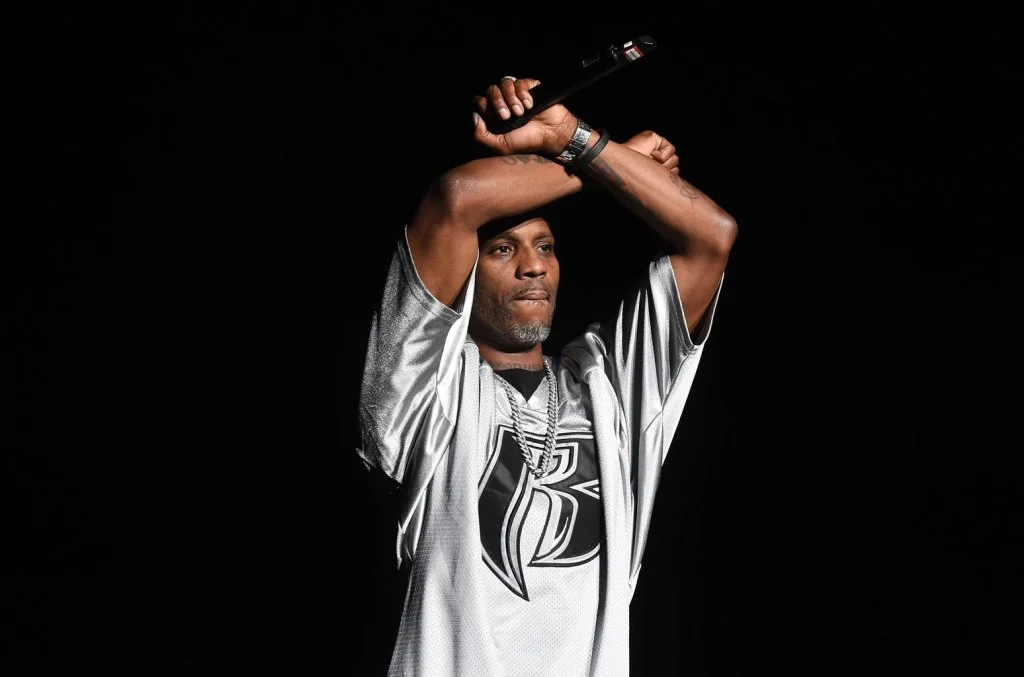
Four years after DMX’s tragic 2021 death, a New York judge has ruled that his ex-wife can’t claim a 50 percent stake in the rapper’s music catalog and other intellectual property (IP) rights.
Tashera Simmons, who was married to the legendary rapper (Earl Simmons) for 16 years, sued his estate last year, claiming she was the rightful owner of half of his copyrights, trademarks and likeness rights. But in a ruling Monday (April 7), a New York judge said otherwise.
“The estate is the sole owner of all intellectual property rights [that] Earl Simmons acquired during his marriage to plaintiff, as well as any and all other trademarks and intellectual property rights that belonged to Earl Simmons at the time of his death,” Judge David F. Everett wrote.
Trending on Billboard
The dispute centers on the couple’s 2016 divorce agreement, which mentioned “intellectual property” but didn’t expressly state that Tashera was a co-owner of the copyrights and trademarks. Before his death, DMX insisted the deal only granted her royalty payments — an argument his estate has maintained in the years since his death.
In Monday’s decision, Judge Everett not only ruled that the divorce settlement “does not confer ownership,” but that Tashera had essentially waived the right to make that claim. The judge cited the fact that she had raised the issue in previous litigation and had then signed a settlement that made no mention of sharing ownership.
“Under the circumstances of this case, the court will not, in effect, reopen those proceedings to reinterpret the parties’ 2016 settlement agreement, particularly where the party best positioned to contest a contrary interpretation is now deceased,” the judge wrote.
DMX, one of the most influential stars in hip-hop history, was married to Tashera through his turn-of-the-century heyday, as he released Billboard Hot 100 hits like “Ruff Ryders’ Anthem,” “Party Up (Up In Here)” and “What These Bitches Want.” The pair, who share four children, filed for divorce in 2013 and finalized the split in 2016. After years of health issues, DMX died in April 2021 following a drug overdose and subsequent heart attack.
Tashera sued last year, claiming that the estate’s administrators (DMX’s ex-fiancée Desiree Lindstrom and his daughter by another woman, Sasha Simmons) were improperly disputing her ownership stake. She cited a handwritten excerpt from the divorce settlement, which said she would get half of IP rights, followed by: “which shall include, but not be limited to, royalties.”
But in Monday’s decision, Judge Everett said that language “does not unequivocally assign ownership of decedent’s copyrighted works or trademark and, indeed, makes no mention of ownership or title to such property.”
“Instead, plaintiff proffers an interpretation of the phrase ‘intellectual property rights’ to include ownership, but had that phrase meant ownership, then there would be no need to define those rights further in the subsequent clause, all tellingly limited to various categories of royalty payments.”
The judge did side with Tashera on one smaller issue by refusing to dismiss her accusations that DMX had breached the divorce agreement by failing to pay $214,000 in child support. That issue is factually disputed by both sides, the judge said, meaning dismissing it would be “premature.”
Neither side immediately returned a request for comment on Wednesday (April 9).

 State Champ Radio
State Champ Radio 


